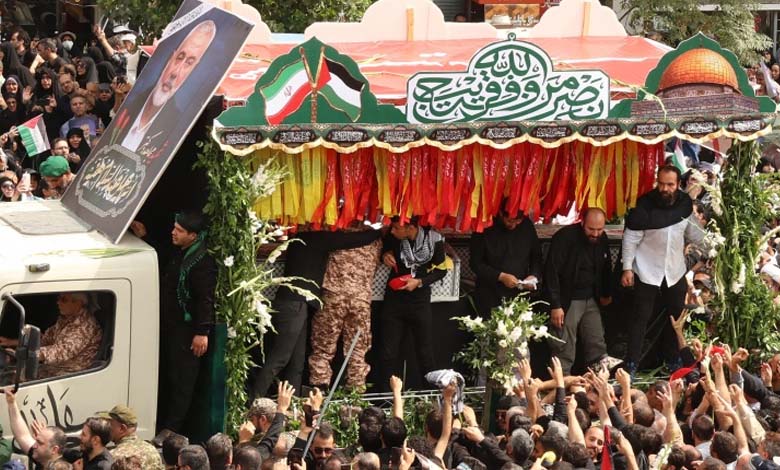How the Brotherhood’s Media Handled Haniyeh’s Assassination: Has Hamas Lost Its Importance to the Brotherhood?

Radwan Rashwan, chairman of the Egyptian General Authority for Information, analyzed the Muslim Brotherhood‘s media coverage, both traditional and on social networks, of the assassination of Hezbollah’s chief military commander Fouad Shukr by the Israeli army in the heart of southern Beirut, and the highly notable and significant assassination of Hamas‘s political bureau chief, Ismail Haniyeh, in Tehran.
According to Rashwan, aside from the formal expressions of sadness and sympathy by the Brotherhood‘s media and its officials towards the two assassinated leaders, it is more important to note that none of the Egyptian branches of the Brotherhood issued any official statement or even personal condolences, especially for the Hamas political bureau chief, since his assassination until now.
In an article titled “The Brotherhood and Their Media: Scandalous Performance Regarding Haniyeh‘s Assassination,” Radwan added that the Egyptian Brotherhood‘s neglect of Haniyeh‘s assassination is a very significant development. It seems to have followed the Hamas‘s relationship with the Muslim Brotherhood since May 2017 when Hamas annulled its old charter issued in August 1988 and replaced it with the “Hamas Document of General Principles and Policies,” consisting of 42 articles. At that time, Hamas significantly severed its ties with the Brotherhood, especially after removing Article 2 of its annulled charter, which explicitly stated that it was “a wing of the Muslim Brotherhood in Palestine,” instead defining itself as “an Islamic Palestinian national liberation and resistance movement.”
-
Haniyeh’s Succession Tests Hamas’s Cohesion
-
Ismail Haniyeh Renews His Rejection of Excluding Hamas from Any Settlement Regardent Gaza’s Future
Rashwan mentioned that Hamas has lost its importance to the Egyptian Brotherhood, who previously sought to use it in their struggle with the Egyptian state. The sensitivity and abandonment by the Brotherhood in general, and the Egyptians in particular, of Hamas, were increased by the fact that throughout the 10 months of bloody war in Gaza, Hamas did not adopt the Brotherhood’s rhetoric and slogans and never mentioned them. Instead, Hamas maintained a discourse of “popular resistance and national liberation,” which the Brotherhood considered a loss of a “historic opportunity” to use this war and the resilience of the Palestinian people for their political propaganda.
-
From Yassin to Haniyeh… Key Hamas Leaders Targeted by Israel
-
Tough-Talking Haniyeh Was Seen as the More Moderate Face of Hamas
Finally, the chairman of the Egyptian General Authority for Information pointed out that the Brotherhood‘s media performance is customary and a natural continuation of what they have been doing for over 10 years. Despite the assassination of Haniyeh occurring in the heart of Tehran during an official visit and in one of the theoretically highly secured residences, these media did not direct a single word of criticism towards the Iranian state. They, as usual, devoted themselves to attacking various Arab governments, mainly Egypt, with the same old worn-out pretexts and lies, constantly questioning their stances towards the Palestinian people and their cause.












